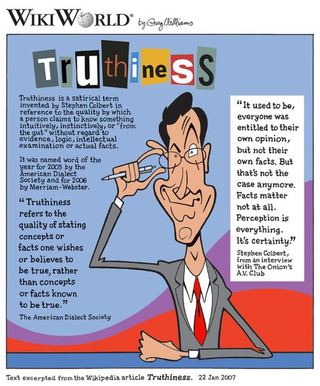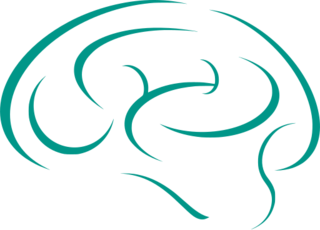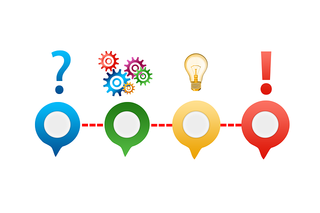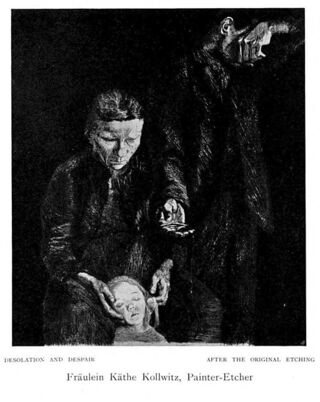Some evidence suggests a genetic predisposition to risk-taking.
Not withstanding that and philosophical determinists from Kant to Sam Harris, I like to think we retain a measure of free will.
With that as an assumption, my Psychology Today article today offers a self-assessment inventory that
could help you decide whether you want to direct your free will in a new
direction.
Anyone who is 65 or younger, especially if “well-educated,” has
throughout their life, probably received a consistent message from
society's mind molders—the schools colleges and media—that liberal is
good, conservative is bad.
Broadly, that translates into redistributing
from the Haves to the Have-Nots: whether it’s more taxpayer-paid
programs for the poor, supporting Palestinians over Israelis, and, of
course, supporting Democrats over Republicans.
I have both liberal and conservative friends. In recent years and
acceleratingly so in recent months, the liberals are feeling buoyed
and/or angry, while the conservatives are more often sad, silenced, and often lonely. My Psychology Today article today offers a few thoughts for conservatives.
When are we exercising due caution rather than
crossing the line into over-suspiciousness?
Of course, that question
can’t have a black-and-white answer. But it might help to inventory your
level of trust in common situations and then reflect on whether and in
what circumstances you should be more trusting or less. My Psychology Today article today offers a 10-item self-assessment.
Adventure. That word can evoke images from shopping to swashbuckling.
My Psychology Today article today offers composite letters, one from a person who is living a quite
standard life, the other from someone who is living quite large. I offer
thoughts to each.
There certainly are times to speak up. At the macro level, we might
speak out on a political issue. Micro, we often should ask for what we
want lest we unduly sacrifice our agency. Plus, speaking is active
learning: We grow from figuring out what to say and then saying it.
But these days, silence may be getting short shrift. I make the case in my Psychology Today article today.
Stephen Colbert coined the term, "truthiness," which refers to an
assertion that seems true but well may not be. In our heated times, it
seems that truthiness has proliferated.
My Psychology Today article today attempts to make it easier to distinguish truth from truthiness.
Sure, there’s a time to go hard, for example, when competing in the
Olympics. But perhaps surprisingly often, it's wise to aim for the easy. My Psychology Today article today offers easier options for approaches to activities in both your professional and personal life
Rarely are predictions of dramatic change accurate. Prospects are
better although less impressive when predicting continuation of existing
trends. My Psychology Today article today offers my best shots.
Of course, a list of words that convey intelligence
could fill a small dictionary, but given space
limitations, My Psychology Today article today offers 19 that seem particularly useful in today’s
roiling times. I use COVID-related examples of how each word could be
used.
Using these words, many of which aren't fancy, should add intelligence and nuance to what you say or write.
Many people wonder if they should of should have lived life
differently. My Psychology Today article today offers four letters offer varied expressions of that
doubt. I offer my response to each.
The COVID economic shutdown is forcing many people to shop more
thoughtfully. My Psychology Today article today offers 10 examples of what I believe to be thoughtful
purchases.
Much has been written for people who are clinically depressed. Less discussed are people whose baseline on a 10-ponit happiness scale is just modestly below average, say 3 or 4.
I offer advice to sad people in my Psychology Today article today.
This series’ previous installments offered sample scripts for situations at work and intimate relationships.
In the final installment in the series, here are scripts for less
easily categorized situations. Again, when I first use a principle, I’ll
call it out. Of course, these are merely samples. Adapt or scrap to fit
the situation and your personality.
Yesterday in Psychology Today, I offered sample scripts for what to say in ticklish situations in worklife. Today I turn to intimate relationships.
My Psychology Today article today offers a sample script for seven ticklish situations that people
commonly encountered in their worklife. I call-out principles of communication that are embedded in the scripts
Yesterday, I offered thoughts on reinventing work. Today, I turn to education.
If education is our future, it would be brighter if reinvented. While
most parents like their kids' school (if not perhaps COVID-forced
distance learning), student learning has been disappointing, not just in international comparisons but in insufficiently preparing our next generation for the ever more demanding world they will inherit.
My Psychology Today article today offers my favorite ideas for how, not to reform education, but reinvent it.
I’ve written often on aging and thought it might be time to offer an augmented synthesis of my core thoughts on the subject. I've done so as my Psychology Today article today.
People have long sought the spiritual. And although the Pew Center
for the Study of Religion finds "no-religion" to be the fastest growing
religion, many people, including some atheists and agnostics, still want
spirituality to be incorporated into their life.
That urge may feel more pressing today amid COVID stresses and racial roiling atop modern-day’s normal challenges.
My Psychology Today article today offers six ways in which even an atheist or agnostic can
build spirituality into their lives.
My Psychology Today article today offers my thoughts on how to make of these COVID-friendly recreations: walking, reading, cooking, listening to and playing music, tweaking your home, and handwriting letters.
My Psychology Today article today offers a letter from a person who has felt inert because she doesn't feel she can compete with her father. I offer advice that could enable her to succeed on her own terms as well as to become a stronger thinker.
We tend to think of true love as romantic: a soulmate, perfectly
compatible sexually and in day-to-day life, perhaps even having met as
in the movies: swoon at first sight.
May we all find such love but, fortunately, if we allow ourselves to
expand from that definition, true love can manifest in a number of
ways. We may be more pleased with our life if we search out or stop to
appreciate another form(s) of true love. I describe some in my Psychology Today article today.
Today’s COVID and racial stresses atop modern life's challenges are
tempting smokers to light up even more than usual, and even some
non-smokers to take up the habit, a most deadly one. Used as directed, smoking greatly increases the risk of cancer, heart attack, stroke, diabetes, breathing problems (COPD) and, yes, COVID killing you.
The 7-step plan I offer in my Psychology Today article today should help not only smokers but users of other dangerous drugs, from alcohol to marijuana, MDMA to opioids.
When we limit ourselves to charitable giving that's tax-deductible, we may be letting the tail wag the dog. I offer what's offer a wiser giving option in my Psychology Today article today.
Today, we’re buffeted by a perfect storm: medical, economic, racial:
Fear of COVID—Smash!
Having or having a loved-one have COVID: Smash!
Suffering financially because of the COVID economic shutdown: Smash!
Being forced into lockdown for months, with it likely to continue, if
only intermittently. Of course, that can bring such sequelae as weight
gain, domestic violence, kids not getting much of an education, and loneliness from lack of human contact: Smash!
Racial roiling in the aftermath of the Floyd killing: Smash!
It’s enough to drive some people wild, internally or externally, from
cruelty to a loved one to overreaction to strangers you don’t agree
with.
Might any of the ideas I offer in my Psychology Today article today help you shelter from the storm?
Independence Day has a hidebound ring to it, evoking an event of
244 years ago. independence Day seems even less relevant in light of
today’s growing suppression of independent thinking, yes regarding the
deconstructionist triad of race, class, and gender, but far more broadly.
In an attempt to encourage more independent thinking on this
Independence Day, my Psychology Today article today offers three other issues on which the marketplace
of ideas is being truncated.
To try to gain insight or solve a big problem, many people journey.
It could be as short as a quick stroll or as long as a pilgrimage to the
East.
Of course, some people return richly rewarded, whether with clarity on the career
they should pursue, the relationship they should end, or a broader
vision for their life: less materialistic or the converse—deciding that
the life of idealistic poverty is more romantic as portrayed in the
movies than in reality.
But across my many clients who have traveled for insight, most return
empty. Yesterday, a client reported on his solo hiking getaway to June
Lake, which is in a remote part of California. He said, "I’m still
stuck, completely stuck.”
My Psychology Today article today offers some activities you can do without leaving home that my
clients have found more helpful. Note that unlike journeying, in which
the person tends to expect insight to just pop into mind, in these
activities, you are actively working on the problem and so are more
likely to generate something of value. Also, journeying has
distractions: nature, tourist sites, etc. Each of the activities can be done at home, making it easier to focus on the
problem.
When I was 60, I put a paragraph on the corkboard next to my desk. It urged training a successor.
Two days ago, I turned 70, reread it, and decided that although I’m in good health, if I wanted what I’ve learned over these decades as a career counselor to live on after I die, it was time to find and train an apprentice and possible successor.
In hopes it might be instructive to you as you plan your succession, my Psychology Today article today offers what I’m doing:




























